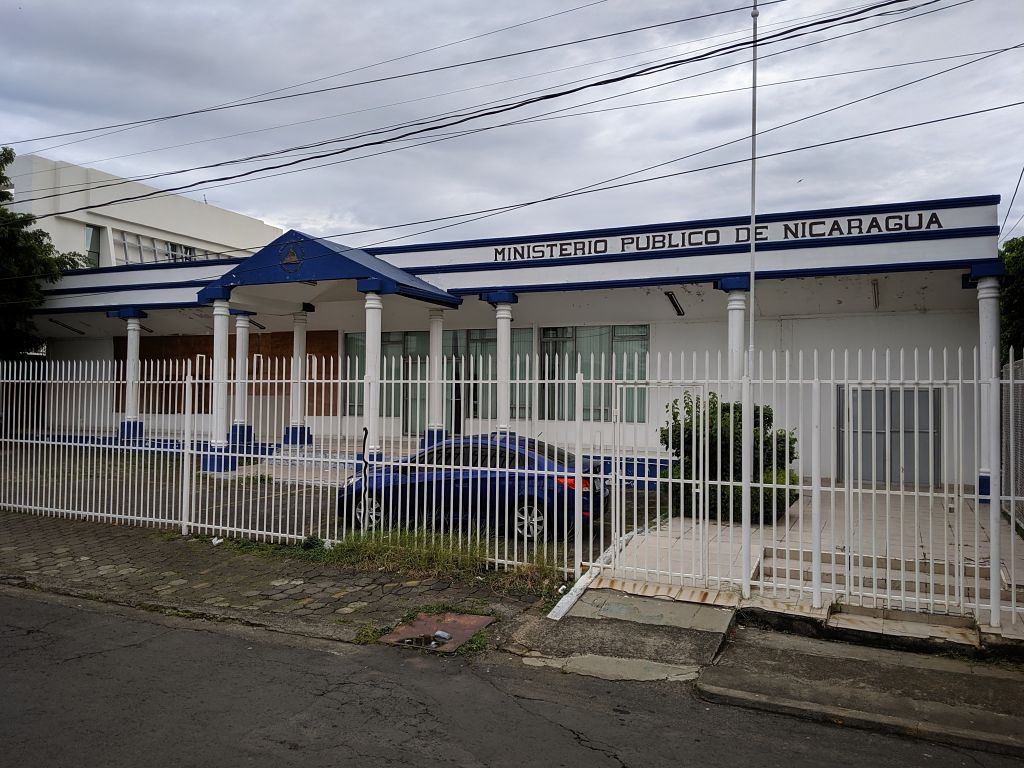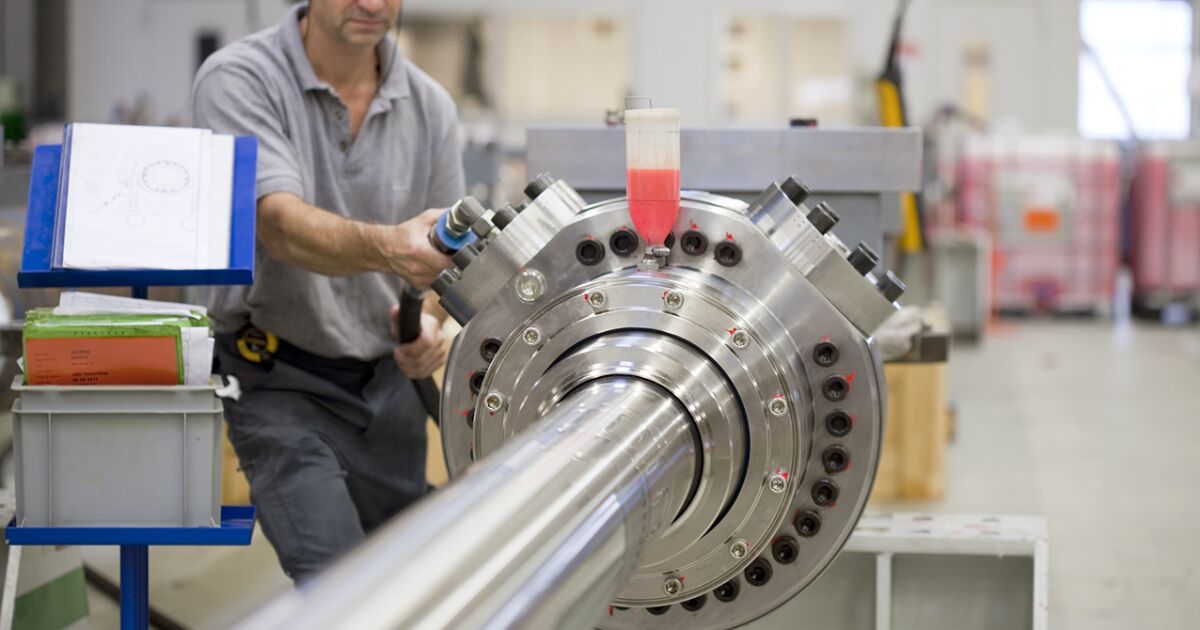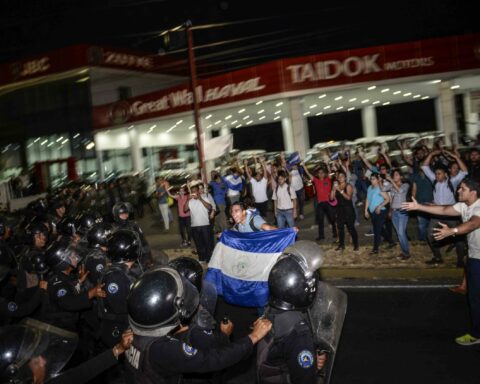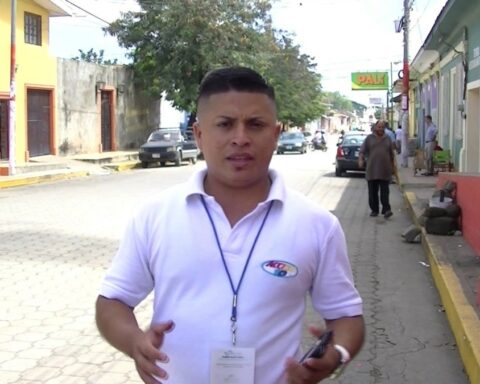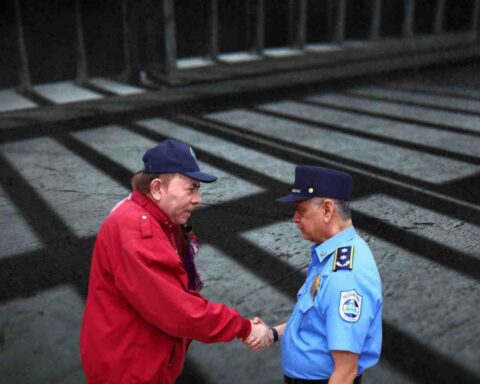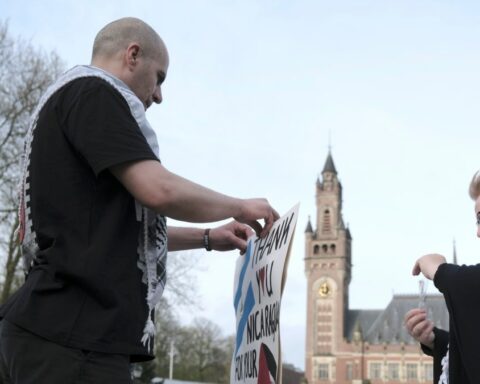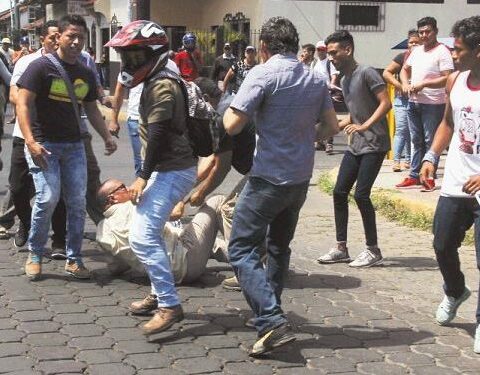Most of the members of the team of prosecutors appointed to indict political and civic leaders, human rights activists, journalists and businessmen in the political trials promoted by the Ortega regime they arose from selection processes without transparency carried out by the Public Ministry, violating the procedures established in Law 586 of the Prosecutor’s Career.
The Prosecutor Career Law precisely regulates the process of electing new prosecutors to lead the accusatory processes by the Public Ministry. However, the destruction of the independence of powers by the Ortega dictatorship has resulted in the procedures established in Law 586 for the selection of prosecutors being manipulated to place related officials, most of them from the ranks of the Sandinista Youth.
An analysis of the functioning of the legal system carried out by the specialized platform Expediente Abierto, briefly mentions this problem with the Prosecutor Career Law.
“Law 586, Prosecutor Career Law, regulates the entry, transfer, promotion, disciplinary sanctions and dismissal of the substantive and administrative personnel of the Public Ministry. This legal framework established that the entry procedure was by public opposition contest. However, the tax authorities have interpreted it to carry it out with internal opposition contests, registering only the applicants, previously entered as interns or tax assistants, related to the party authorities”, cites the Open File analysis.
A special CONFIDENCIAL report published on February 11, 2022 reported who were the members of the team of prosecutors assigned to the political trials in Chipote. The majority, linked to the party ranks of the Sandinista Front.
This team, regularly rotated for each of the accusations that are being carried out, is made up mainly of Perla de los Ángeles Baca, Martha Ileana Morales, Jean Dylan Rivas Falcón, Jorge Luis Arias Jarquín, Marling de Jesús Castro Rodríguez, Andrea del Carmen Salas, Yubelka Pérez Alvarado, Carlos Rafael Espinoza Castilla and Manuel de Jesús Rugama, among others.
Several members of this group of prosecutors emerged from these rigged processes of internal opposition carried out by the Public Ministry since 2007, which is when Daniel Ortega came to power, confided former prosecutors consulted.
“Since 2007, the selection processes for prosecutors are private competitive examinations. This means that they integrate as prosecutors interns or assistants to prosecutors related to the Government, who come from the Sandinista Youth or the Sandinista Leadership Committees (CLS) through these internal opposition contests,” explained the former prosecutor of the Unit of Focus on Gender and current member of the team of defense attorneys for political prisoners Acción Penal, Eilyn Cruz.
Contests must be open, but lack of transparency
When carrying out internal competitive examinations, the provisions of the Prosecutor Career Law are contravened, which states that these processes must be public. “They do not open an open call to the public, as was done before. I remember that before it was opened through La Prensa and El Nuevo Diario and it is even established that any citizen who meets the requirements could participate to aspire to be selected, ”he added.
For three consecutive years (2004, 2005 and 2006) these public opposition contests were held for the selection of prosecutors, until they were blocked with the arrival of Ortega to power.
Through these calls, it was reported how many vacancies for prosecutors were available and the requirements to apply for the positions. Being competitive contests, the applicants competed based on their abilities (subjected to theoretical and practical tests) and legal experiences to be chosen, and not based on any party affiliation.
“Now what is done is that the attorney general (Ana Julio Guido) makes a memorandum calling for a private opposition contest, which is addressed to all departmental headquarters and that is where the interns and assistant prosecutors who they have entered because they have a supporter card of the Sandinista Front, the CLS or they are simply friends of someone from the party or an internal official. They do this process among themselves in the Prosecutor’s Office, they don’t reveal it anywhere and that’s where the selected ones come from,” Cruz explained.
The Attorney General Ana Julio Guido was sanctioned by the United States Department of the Treasury in October 2020. The arguments of this US government body were that Guido was sanctioned for being an official of the regime by forming a group of prosecutors who “worked with the National Police designated to fabricate cases against prisoners politicians and their families.
The Public Ministry at the institutional level was also sanctionedin November 2021. He joined the Police among the sanctioned institutions after the repression unleashed against the population in 2018. In its resolution, the United States recalled that it was the Prosecutor’s Office that brought charges against the imprisoned presidential candidates: Cristiana Chamorro, Arturo Cruz, Félix Maradiaga, Juan Sebastián Chamorro, Miguel Mora, Medardo Mairena and Noel Vidaurre.
“The Public Ministry is also responsible for the arrest of almost 40 people since the end of May, including leaders of civil society, the private sector, students and journalists,” said the United States, describing that Ortega apparatus as an instrument to take political actions that threaten democracy and the country’s institutions.
“This is part of the machinery of political trials. We are talking, to be able to give an example, of young people who leave the UNAN and being interns or inexperienced lawyers who enter the Prosecutor’s Office just because they are from the Sandinista Front, because obviously what we have are a lot of mediocre officials who only get to the trials to do what they are ordered,” added former prosecutor Cruz.
Decomposition and lack of values
Cruz clarified that among the team of prosecutors formed to carry out the accusations against the political prisoners of Chipote, there are some that did result from the public contests established by law, such as the case of Giscard Morada Guillén, Manuel de Jesús Rugama and Javier Morazán, who is the prosecutor in charge of the Unit against Organized Crime.
A CONFIDENCIAL investigation published on October 9, 2020 revealed that Morazán was in charge of directing a kind of elite unit of prosecutors entrusted by the regime to fabricate evidence against prisoners of conscience kidnapped by Ortega.
“In these cases what I think is that the decomposition comes from a situation of principles and lack of values. In these cases, it was of no use to them to have come from public competitions. Most of the prosecutors involved do come from these currently established dark and irregular contests,” he opined.
The regime has developed a machinery under its control between judges, prosecutors and police to impose sentences on 32 political prisoners so far, almost all accused of committing the alleged crime of “conspiracy to undermine national integrity” or for the alleged “propagation of fake news”
A report of the Inter-American Commission on Human Rights (IACHR)published in October 2020, indicated that, since the beginning of the demonstrations, “arbitrary arrests and deprivation of liberty have been used with the main intention of repressing any position of opposition to the current regime and transmitting a message of fear and control of the Nicaraguan population.
To achieve this, a repressive mechanism deployed by the Police has been key, in order to besiege precise targets in their homes, and prevent any opposition demonstration, together with the campaign of repression sustained by the justice system, in which they participate. judges and prosecutors to concretize the convictions of critics of the regime.

